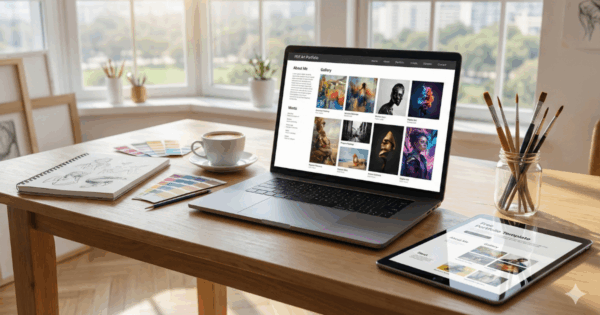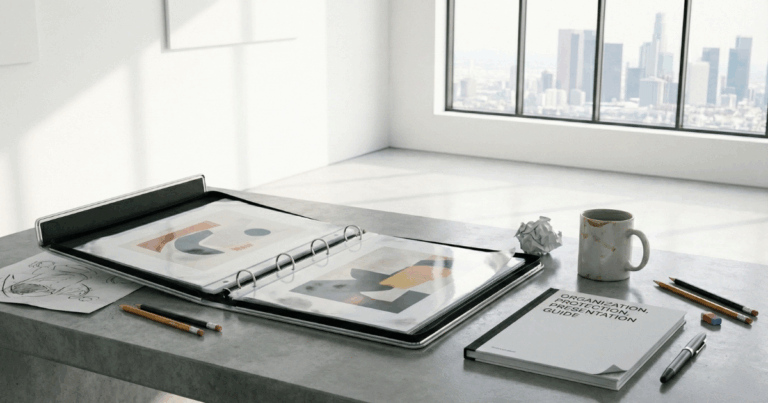How to Create a Professional PDF Art Portfolio (Free Templates & Guide)
A well-organized PDF art portfolio has become a standard requirement for art school applications, creative job opportunities, internships, and client presentations. For art students and creative professionals, a digital portfolio is no longer optional — it is a key tool for communicating your work clearly and professionally.
This guide walks you through what to include, how to design it, and how to avoid common mistakes when building your portfolio.
Why PDF Portfolios Matter for Artists
PDF portfolios offer a balance between flexibility and professionalism. They allow your work to be viewed consistently across devices while maintaining layout, image placement, and typography.
Key advantages include:
Professional presentation — A clean, structured format helps reviewers focus on your work.
Easy submission — Most schools, studios, and employers request digital PDF formats.
Cross-platform compatibility — PDFs can be opened on computers, tablets, and mobile devices without layout shifts.
A strong PDF portfolio shows not only your artistic skills but also your ability to present work clearly.
What to Include in an Art Portfolio PDF
A clear structure makes your portfolio easier to review. Most successful portfolios include:
Core sections
Cover page with your name and portfolio title
Artist statement explaining your perspective and approach
Project titles, medium, and brief descriptions
Consistent layout and page numbers
Optional sections
Resume or CV
Awards, exhibitions, or achievements
Press mentions or collaborations
Keeping the layout simple ensures the artwork remains the focus.
Free Art Portfolio PDF Templates
Using a template can save time and help maintain visual consistency. Templates typically include:
Structured cover and intro pages
Image grids for project layouts
Proper margins and spacing
Clean typography styles
These are especially useful for students preparing applications or creatives building their first professional portfolio.
How to Customize a Portfolio Template
You don’t need advanced design skills to create a strong portfolio.
Open the template in Canva, Word, or your chosen tool
Replace sample images with your own artwork
Update titles, descriptions, and your artist statement
Keep fonts and spacing consistent
Export as a high-quality PDF
Consistency matters more than decorative design.
If you prefer full control, follow this simple workflow:
Step 1 — Choose a Design Tool
Canva, Google Slides, PowerPoint, or Adobe InDesign are all commonly used.
Step 2 — Prepare Your Artwork
Scan or photograph work in high resolution and organize files by theme or project.
Step 3 — Plan the Layout
Use grids to align images and text. Maintain consistent margins and spacing.
Step 4 — Add Introductory Pages
Include a cover, contents page (if needed), and artist statement.
Step 5 — Export Carefully
Use high resolution (around 300 dpi if printing) and check file size before submission.
Common Mistakes to Avoid
Using too many fonts or colors
Low-resolution images
Missing project descriptions
Overly large file sizes
Inconsistent layouts across pages
Small details strongly affect how your portfolio is perceived.
Where to Submit or Share Your Portfolio
PDF portfolios are commonly used for:
University and art school applications
Creative job or internship submissions
Client proposals and freelance inquiries
Online platforms and personal websites
Digital First — But Consider Physical Presentation
Although digital portfolios are standard, some academic reviews, exhibitions, or interviews may still involve printed work. In those situations, structured art portfolio cases help protect printed materials and keep them organized during transport.
Conclusion
A professional PDF portfolio is more than a file of images — it’s a structured presentation of your creative identity. Clear organization, strong visuals, and thoughtful layout can make a significant difference in how your work is received.



